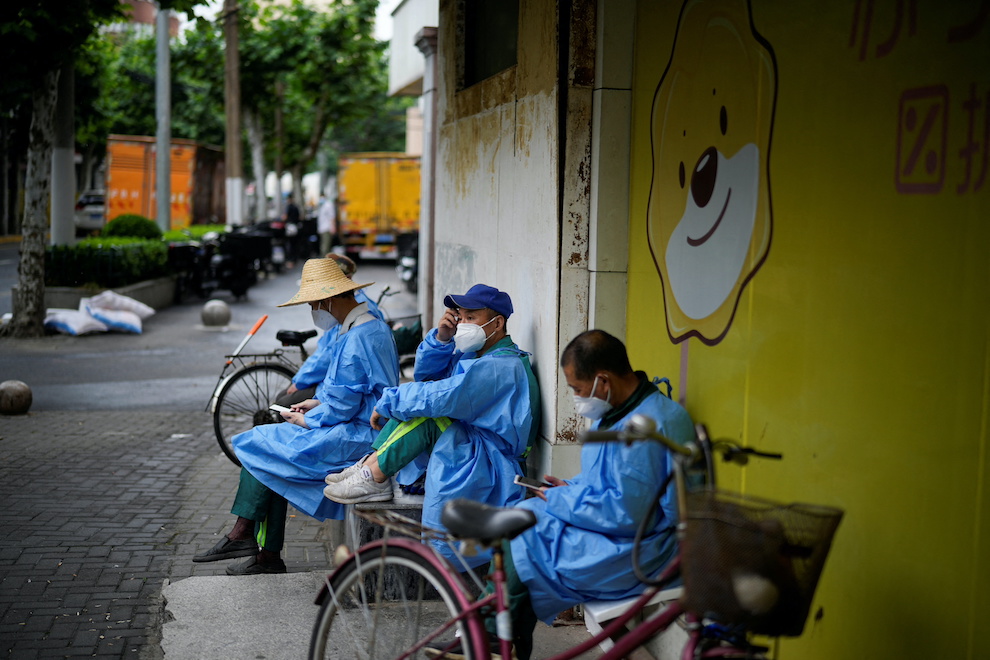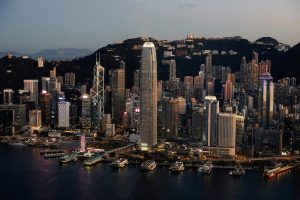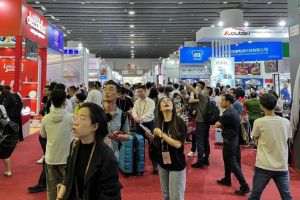Authorities in Shanghai said on Sunday they will ease the city’s two-month lockdown by dropping “unreasonable restrictions” that hinder citizens resuming their normal lives and work.
Beijing was following a similar path, meanwhile, reopening malls, theatres, gyms, and other venues, plus some of its public transport systems.
Shanghai reported just over 100 daily Covid cases on Sunday, while Beijing recorded 21, mirroring a nationwide downtrend.
Shanghai, China’s commercial hub and home to 25 million people, will ease testing requirements from Wednesday June 1, for people who want to enter public areas, city government spokeswoman Yin Xin said.
“The current epidemic situation in the city continues to stabilise and improve,” Yin said, adding Shanghai’s strategy was now “pivoting towards normalised prevention and control.”
The city plans to revise guidelines for epidemic prevention and control of returning to work, by cancelling “unreasonable restrictions” on the resumption of work and production for enterprises and remove a “white-list”, Vice Mayor Wu Qing told a news briefing. The white-list refers to companies allowed to resume work.
There appears to be widespread recognition that the lockdown has severely damaged the economy and caused many Shanghai residents to lose income, struggle to source food and to cope mentally with prolonged isolation.
The painful coronavirus curbs in major Chinese cities run counter to trends seen in the rest of the world, which has largely moved towards co-existing with the virus even as infections spread.
However, people entering public venues or taking public transport will need to show a negative PCR test taken within 72 hours, versus 48 hours previously.
ALSO SEE: China Covid Curbs Will Harm its Popularity for Years: AmCham
Buses Back to Normal Monday
Bus services within the Pudong New Area, home to Shanghai’s largest airport and the main financial district, will fully resume by Monday, officials said. Plaza 66, an upscale mall in central Shanghai that hosts Louis Vuitton and other luxury brands, reopened on Sunday.
Authorities have been slowly relaxing curbs, with a focus on resuming manufacturing.
More people have been allowed to leave their flats, and more businesses permitted to reopen, though many residents remain largely confined to their housing compounds, and most shops limited to deliveries.
The authorities approved 240 financial institutions in the city for reopening from Wednesday, state-run Shanghai Securities News reported on Sunday, adding to a list of 864 firms released earlier this month. That is out of Shanghai’s roughly 1,700 financial firms.
The newspaper said on Saturday that the more than 10,000 bankers and traders who have been living and working in their offices since the start of lockdown were gradually returning home.
Shanghai has already allowed key manufacturers in the auto industry, life sciences, chemicals and semiconductors to resume production since late April.
Beijing Theatres, Other Venues Reopen
In the capital Beijing, libraries, museums, theatres and gyms were allowed to reopen on Sunday, with limits on numbers of people, in districts that have seen no community Covid cases for seven consecutive days.
The districts of Fangshan and Shunyi will end work-from-home rules, while public transport will largely resume in the two districts as well as in Chaoyang, the city’s largest. Still, restaurant dining remains banned city-wide.
China’s economy has shown signs of recovering its heartbeat this month following April’s slump, but activity levels are weaker than last year and many analysts expect a second-quarter contraction.
The strength and sustainability of any recovery will depend largely on Covid, with the highly transmissible Omicron variant proving hard to exterminate and prone to comebacks.
Investors have worried about the lack of a roadmap for exiting the zero-Covid strategy of ending all outbreaks at just about any cost, a signature policy of President Xi Jinping. He is expected to secure an unprecedented third leadership term at a congress of the ruling Communist Party in the autumn.
Markets expect more policy support for the economy.
“We expect policies to ease further on the fiscal front to boost demand, given downward pressures on growth and the uncertainty of the recovery pace,” Goldman Sachs analysts wrote in a note on Friday.
• Reuters with additional editing by Jim Pollard
ALSO SEE:
WHO Chief Censored in China After Urging Switch From Zero-Covid
Shanghai Close to Covid Lockdown End But Beijing Still Wary
Shanghai Factory, Retail, Property Sectors Pulverised by Lockdown
























